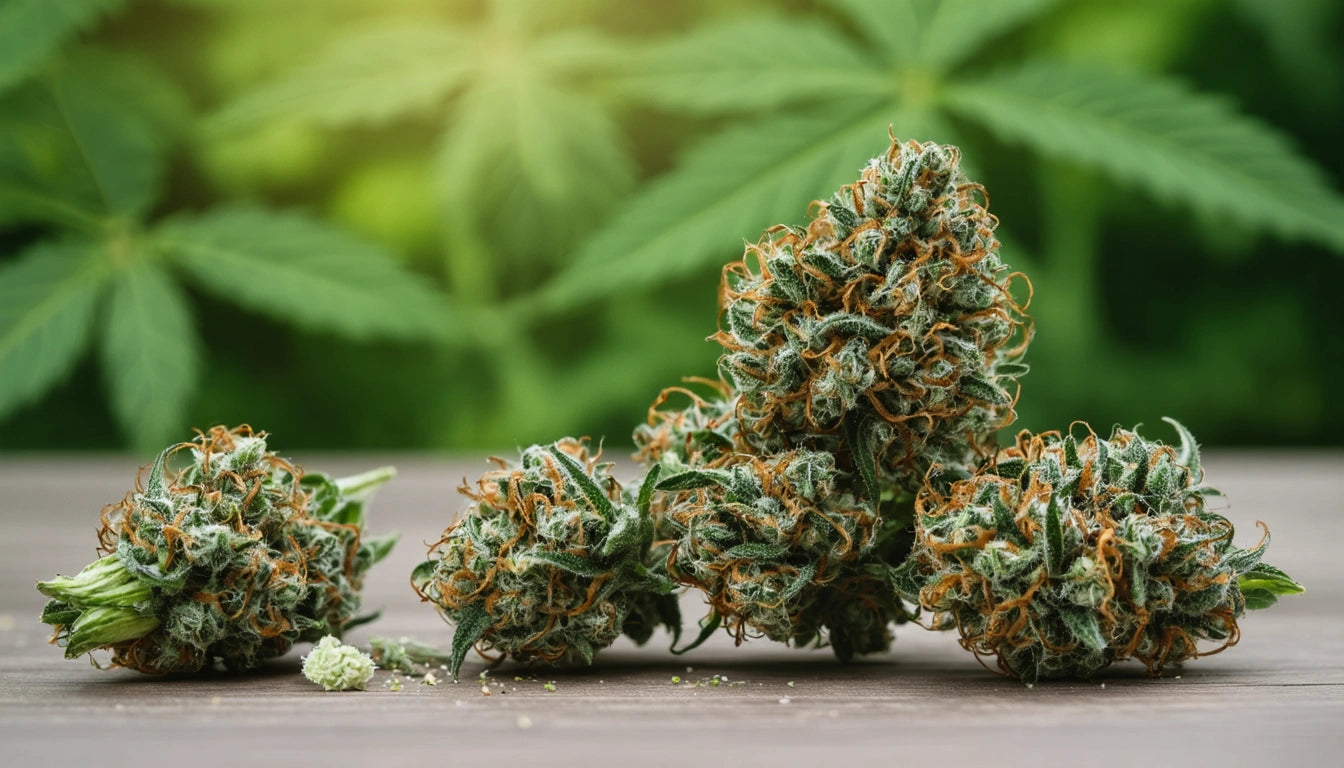Table of Contents
Understanding Caryophyllene: The Role and Benefits of This Cannabis Compound
When exploring cannabis compounds, many consumers focus exclusively on THC and CBD percentages. However, terpenes like caryophyllene play a crucial role in determining both the aromatic profile and therapeutic effects of different strains. Understanding what is caryophyllene in weed and what does caryophyllene do can help consumers make more informed choices about their cannabis products.
What Is Caryophyllene: The Spicy Terpene
Beta-caryophyllene (β-caryophyllene) is a sesquiterpene found in numerous plants including black pepper, cloves, hops, rosemary, and cannabis. It's responsible for the spicy, peppery aroma that characterizes many cannabis varieties. Unlike other terpenes, caryophyllene has a unique molecular structure that allows it to interact with the body's endocannabinoid system in ways that other terpenes cannot.
This terpene is one of many compounds that contribute to the complex structure of cannabis flowers. Its presence varies significantly across different strains and can be influenced by growing conditions, harvesting methods, and curing processes.
Caryophyllene in Cannabis: Distribution and Identification
Caryophyllene is commonly found in cannabis, though its concentration varies widely across different strains. Typically, it's more abundant in strains that exhibit spicy, woody, or peppery aromas. When present in significant amounts, it contributes to the distinctive scent profile that helps consumers identify specific cannabis varieties.
How to Detect Caryophyllene
- Aroma: Peppery, spicy, woody notes
- Taste: Often creates a warm, spicy sensation
- Visual cues: None specific to caryophyllene (requires lab testing for confirmation)
Laboratory testing is the only definitive way to determine the exact caryophyllene content in cannabis products. Many producers now include terpene profiles on their packaging, particularly for products stored in containers with secure child-resistant lids designed to preserve these volatile compounds.
Therapeutic Benefits of Caryophyllene
What does caryophyllene do in terms of therapeutic effects? Research suggests this terpene offers several potential health benefits:
Anti-Inflammatory Properties
Caryophyllene has demonstrated significant anti-inflammatory effects through its interaction with CB2 receptors, which are primarily found in immune tissues. This interaction may help reduce inflammation without producing psychoactive effects, making it valuable for medicinal applications.
Pain Management
Studies indicate that caryophyllene may help manage pain through multiple mechanisms, including its anti-inflammatory properties and its ability to modulate pain perception through the endocannabinoid system.
Anxiety and Stress Reduction
Preliminary research suggests caryophyllene may have anxiolytic (anxiety-reducing) properties. This could explain why some cannabis strains high in this terpene are reported to help with stress and anxiety management.
Caryophyllene-Rich Cannabis Strains
Several popular cannabis strains are known for their high caryophyllene content:
- GSC (formerly Girl Scout Cookies): Contains significant caryophyllene alongside other terpenes
- Original Glue (GG4): Known for its relaxing effects and peppery notes
- Chemdawg: Features a distinctive chemical and peppery aroma
- Sour Diesel: Combines caryophyllene with other terpenes for its unique profile
- Death Star: An indica-dominant hybrid with notable caryophyllene content
These strains demonstrate how caryophyllene contributes to the broader cannabis terminology and cultural landscape, with many connoisseurs specifically seeking out these varieties for their terpene profiles.
Unique Properties: The Cannabinoid-Terpene Connection
What makes caryophyllene particularly interesting is its dual nature as both a terpene and a functional cannabinoid. It's the only known terpene that can bind directly to cannabinoid receptors, specifically the CB2 receptor. This unique property has led researchers to classify it as a dietary cannabinoid.
This dual functionality contributes to the entourage effect, where multiple cannabis compounds work together synergistically to produce effects different from what any single compound would create alone. For consumers wondering what does caryophyllene do in this context, it likely enhances the therapeutic potential of other cannabinoids while adding its own benefits.
Distinguishing Features
Unlike some plants that may visually resemble cannabis, the presence of caryophyllene and other specific terpenes creates a biochemical signature unique to cannabis and a few other plant species. This biochemical profile is far more definitive than visual characteristics when identifying cannabis and its compounds.
Maximizing Caryophyllene Benefits in Cannabis Products
For consumers interested in the potential benefits of caryophyllene, several approaches can help maximize its effects:
- Choose strains known to be high in caryophyllene
- Consider consumption methods that preserve terpenes (vaporization at lower temperatures rather than combustion)
- Look for full-spectrum extracts that maintain the plant's natural terpene profile
- Store products properly in airtight containers away from heat and light
- Check product labels for terpene content information
Understanding what is caryophyllene in weed allows consumers to make more informed choices about products that might address specific needs, particularly for those seeking anti-inflammatory or anxiolytic effects without necessarily experiencing strong psychoactive responses.
As research continues to unveil the complex relationships between cannabis compounds, caryophyllene stands out as a bridge between the aromatic world of terpenes and the physiologically active realm of cannabinoids. This unique position makes it an important focus for both recreational consumers seeking specific experiences and medical users looking for targeted therapeutic effects.











Leave a comment
All comments are moderated before being published.
This site is protected by hCaptcha and the hCaptcha Privacy Policy and Terms of Service apply.